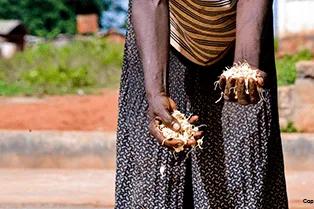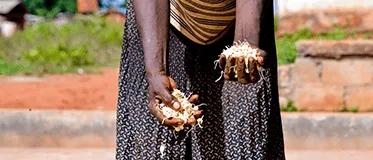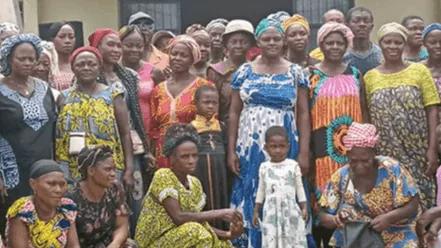Benin
Health
Training dogs to detect breast cancer, a method for screening disadvantaged women in Benin
Impact
News and Insights
CassVita has developed an innovation to minimize post-harvest cassava losses and thus improving income for farmers.
Project ported by:


Cassava is grown by 20 million farmers in Africa, South America and Southeast Asia. However, it has a shelf life of 2 days after harvest. Consequently, about 40% of crops are lost, resulting in an inability for the farming community to benefit from it, which leads in significant loss in income. Globally, 93 million tons of spoilage are recorded annually (Naziri et al, 2014).
Minimising cassava spoilage could be a solution to alleviate poverty in farming communities as farmers would be able to monetize more of their harvest and therefore have more sustainable livelihoods.

The innovation developed by CassVita is based on two dimensions:
The farmers’ relationship technology aims at:

CassVita intends to reduce cassave spoilage from 10% of harvest to under 5%, leading to an increase in per capita income per day and facilitate financial inclusion for farmers.
If the project is successful, CassVita plans to evaluate the impact of the technology with a randomized controlled trial and scale it to more farming communities in Cameroon.
Projects
Projects funded by FID